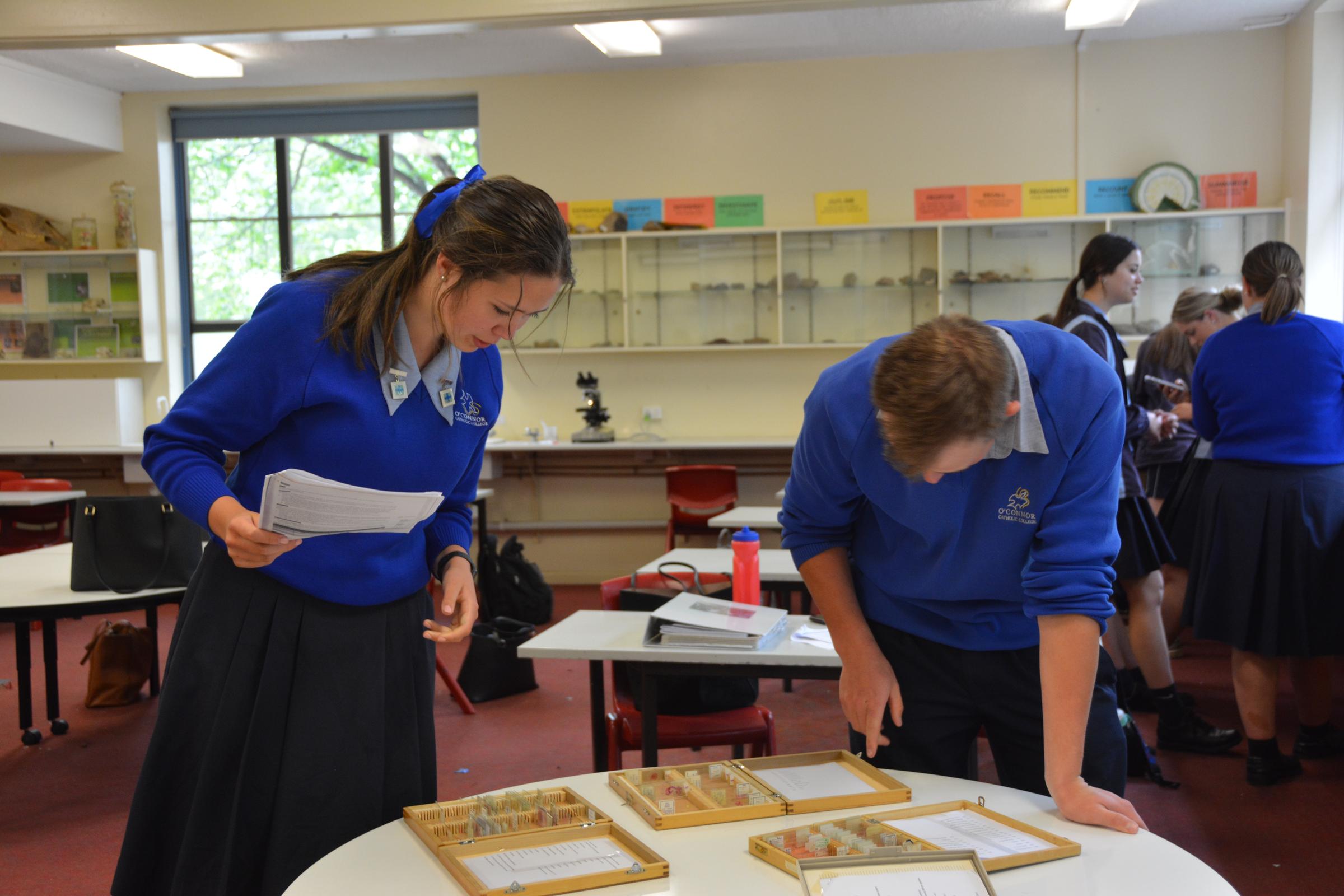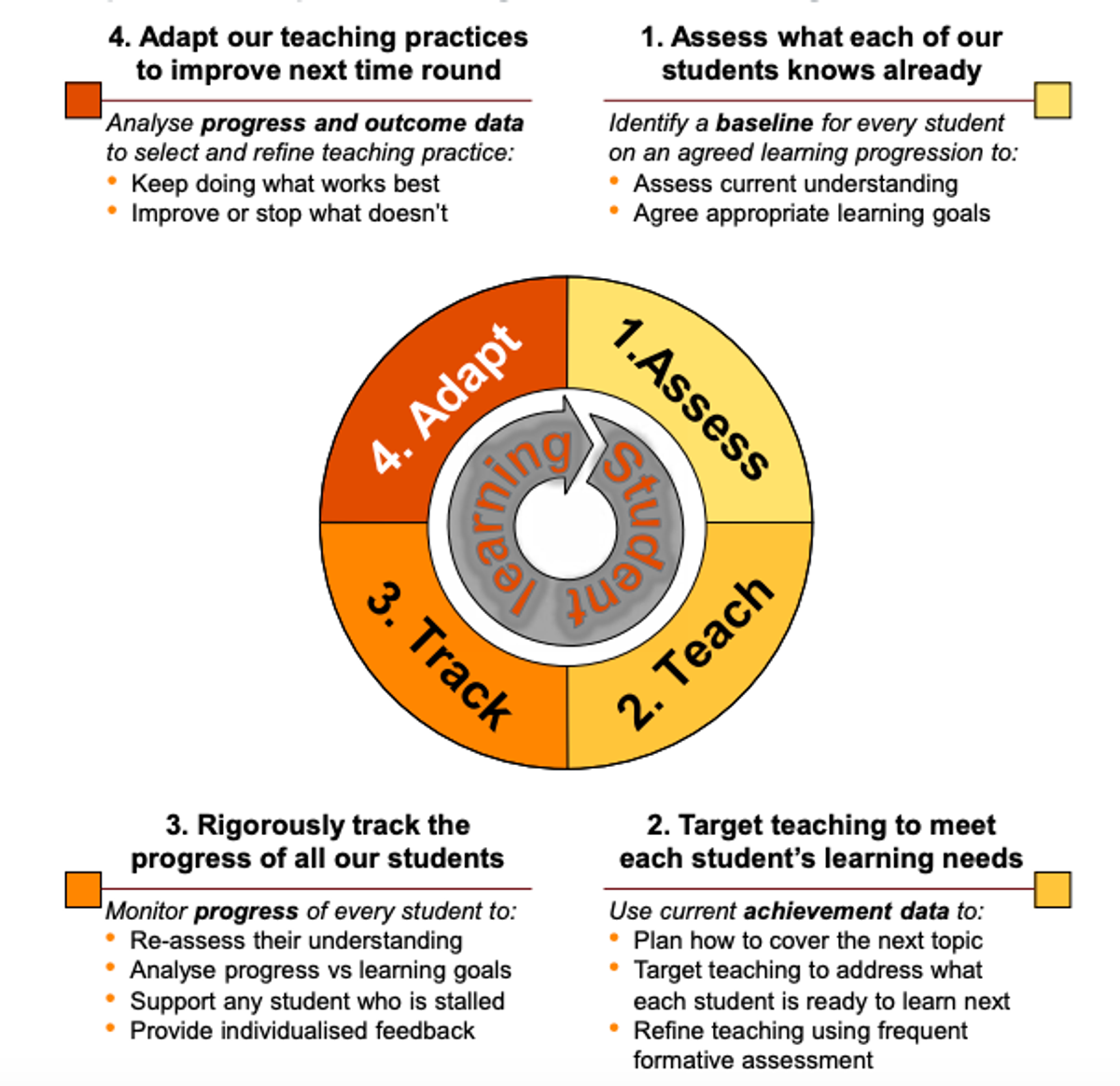Assistant Principal / Leader of Pedagogy
Mr Stephen Chapman

Assistant Principal / Leader of Pedagogy
Mr Stephen Chapman
Assessment, Assessment, Assessment!
Here is a word that strikes fear into the hearts of most people. ASSESSMENT. Ok. I get it. When you mention this word to people they often think about traditional assessment ideas. Tests. Exams. Stressful things that are done at the end of each unit or course that teachers use to determine how well each student has learnt the content and then, allocate a grade. That’s all it’s about, right? Discussion over.
Well, no. We are only just getting started. There are so many ways that teachers and students use assessment to move everyone’s learning forward. These different types can be classified into three categories. Assessment FOR Learning. Assessment AS Learning and Assessment OF Learning. Don’t get too stressed about these names. Teachers generally don’t label the assessment they are doing in class as one of these each time (In fact, the word assessment isn’t used much in classes at O’Connor). But it helps everyone to understand how modern classrooms work if they are explained.
Assessment FOR Learning | Assessment AS Learning | Assessment OF Learning |
Teachers use information from the students to adapt their teaching, instruction and feedback. | Students self and peer marking and providing feedback. | Assessment is done generally at the end of a learning sequence to see what the students have learnt. |
Assessment FOR learning has the word “for” in it. You can think of this coming from the word “information”. Assessment for learning is happening any time a teacher uses information from students to adapt their teaching. It is often referred to as Formative Assessment. Here are some examples:


Assessment AS Learning is when students take responsibility for assessing. In other words, students assess their own work and other students work. This is most effective when the criteria for marking is agreed upon. This is often written clearly as Success Criteria. Here are some examples:
Assessment AS Learning is a key component of The Worthwhile Lessonhere at O’Connor. Here is a snippet of that framework that we use as teachers to ensure high quality lessons.


Assessment OF learning is when students are tested on what they have learnt. It usually occurs at defined key points during a teaching work or at the end of a unit, term or semester, and may be used to rank or grade students. Assessment of Learning assists teachers in using evidence of student learning to assess achievement against outcomes and standards. It is sometimes referred to as ‘summative assessment'.
Examples of Assessment OF Learning include:
It is important to note that summative assessments like these can be used to provide the teacher with information to adapt their teaching. This is assessment for learning. Also, students can analyse their performance to identify what areas need improvement. This is assessment as learning.
To bring it all together, I really like the following diagram from The Grattan Institute. It shows how assessment is a key aspect to the improvement cycle.


(Goss and Hunter, 2015)
In summary, assessment is happening in our classes at O’Connor in so many different ways. We have followed modern research that says clearly that summative assessment used with a mark or grade does not encourage students to progress their learning. All it does is encourage the students to develop a fixed mindset. They are at danger of coming to conclusions like “I am dumb” or “I am smart”. Both of these views do not promote a way forward with their learning. Teachers instead use a variety of information and observations to help each student move their learning forward. Feedback is key to this. But that is the beginning of another story.
References
Targeted teaching: How better use of data can improve student learning. Goss, P. and Hunter, J. July, 2015. The Grattan Institute. Retrieved from https://grattan.edu.au/wp-content/uploads/2015/07/827-Targeted-Teaching.pdf
Assessment for, as and of learning. NESA. n.d. Retrieved from: https://educationstandards.nsw.edu.au/wps/portal/nesa/k-10/understanding-the-curriculum/assessment/approaches
Mr Stephen Chapman
Assistant Principal - Leader of Pedagogy
Never stop learning; for when we stop learning, we stop growing - Jack Lewman

